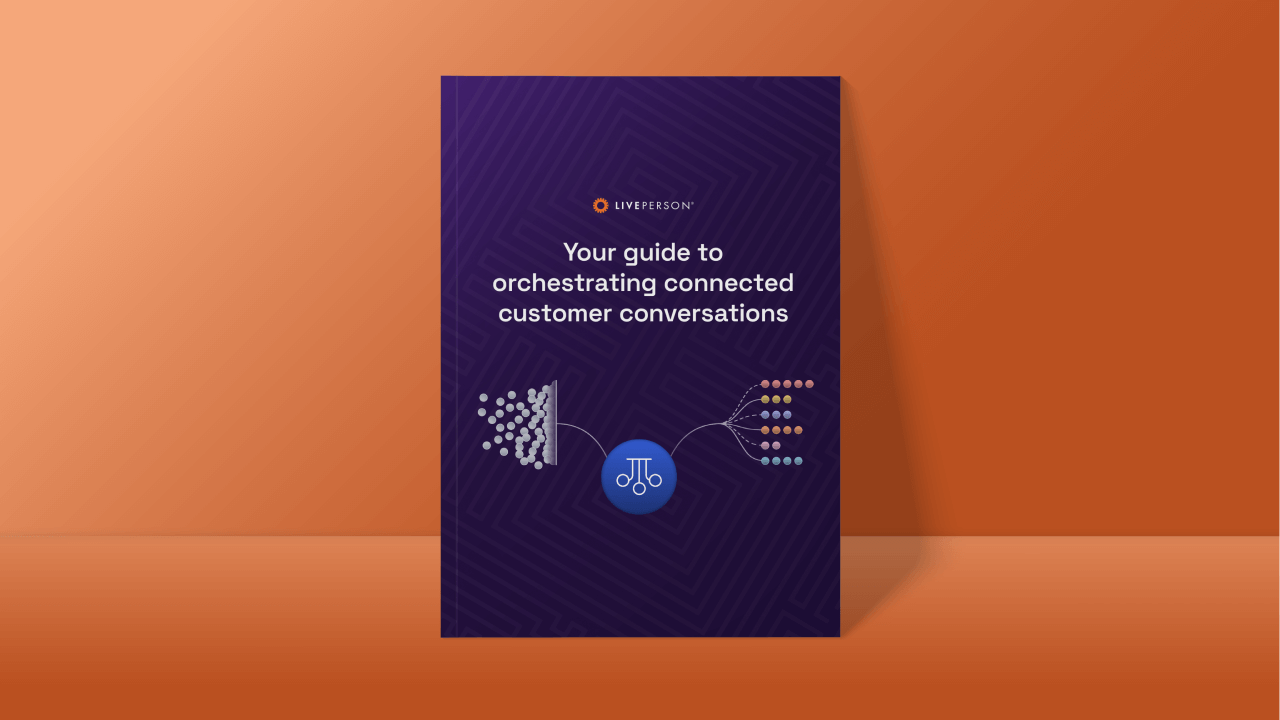article
Conversation Orchestration: Conducting a seamless customer service symphony through conversations
How to conduct effective customer communication in the right channel at the right time with the right AI, humans, and data in the loop
August 07, 2024 • 9 minutes
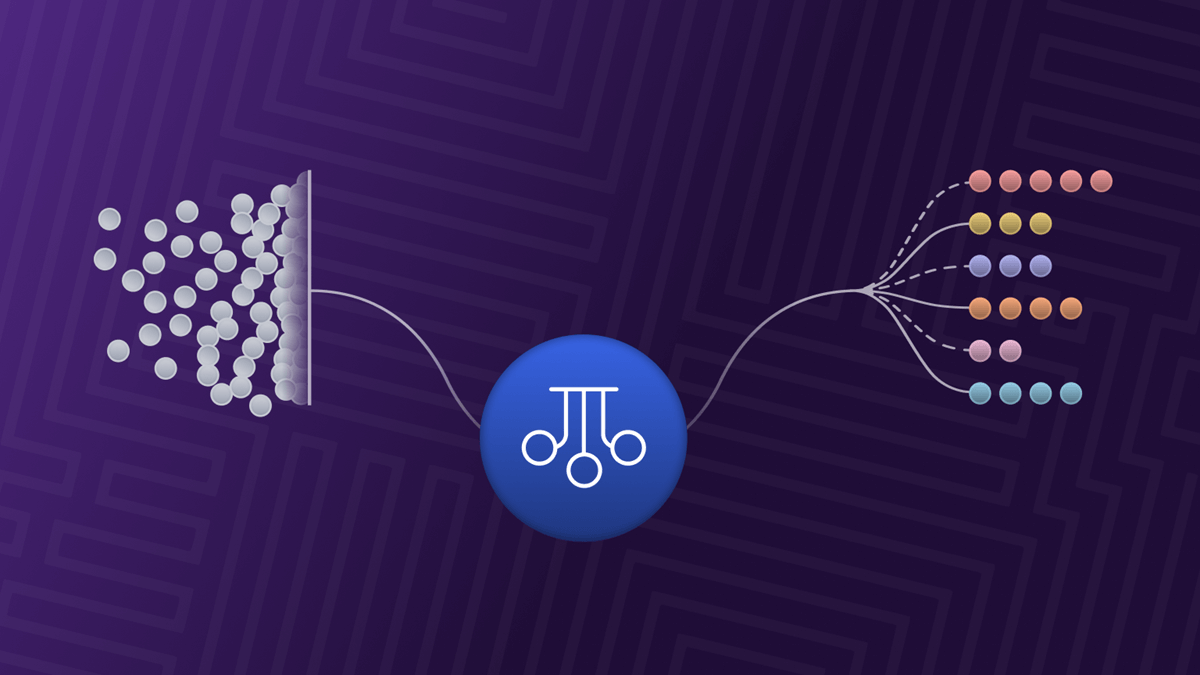
Jump to: What is Conversation Orchestration | Impact of Conversation Orchestration | 4 ways LivePerson can help
Recently, I earned a promotion to Senior Product Marketing Manager here at LivePerson (no this isn’t a humble brag; I’ll get to the point of delivering seamless customer service, I promise). As a gift to myself, I decided to purchase a pair of sneakers I’ve been eyeing for months. My hard work was paying off, why not, as Tom Haverford would say, “Treat yo self”. Unfortunately, what started out as a treat, quickly turned into a customer experience nightmare.
When the shoes arrived, I opened the box and, to my surprise, found a pair of bright pink sneakers four sizes too small. Clearly, this was not my order. So I went to their website and logged into my account. Instead of just filling out the exchange form, I figured I should talk to someone about this error so I went to their webchat. Unfortunately, the model wasn’t performing well on my phone so I quickly switched to my laptop and started the process over again.
10 minutes. That’s about how long I waited before I decided to give up on chat and instead, send an email to their customer service team. The following day I received a response with their apologies. They went ahead and placed a new order for me, all I had to do now was return the pink shoes. Great, problem solved… or so I thought.
While I used the convenient ordering options online, returning via mail isn’t as easy. I had to put it in a box, print out the return label, and then drop it off at the post office. Simple enough if I owned a printer, or lived within a reasonable distance to a post office. In fact, I lived closer to the shoe store itself, so I decided to return it the old-fashioned way, in person.
While I’d love to say the story ended there, it does not. Upon returning the pink shoes in person, the manager of the store wasn’t too sure how to note this in the system. I now had duplicate orders for the same shoes — one of which was still on its way. So instead of fussing about it, they simply wrote a handwritten note on my receipt that the shoes had been returned in-store.
Thankfully, I held on to that note because a month later, my credit card statement showed that I’d been charged twice for the shoes. Frustrated and annoyed with my chat, email, and even in-person customer interactions, I decided to call the company. After re-explaining my story to three different people and emailing photo evidence. I finally received a refund — four channels, six conversations, and weeks later. What started out as a simple “treat” turned into the most drawn-out and exhausting customer experience for a simple mistake.
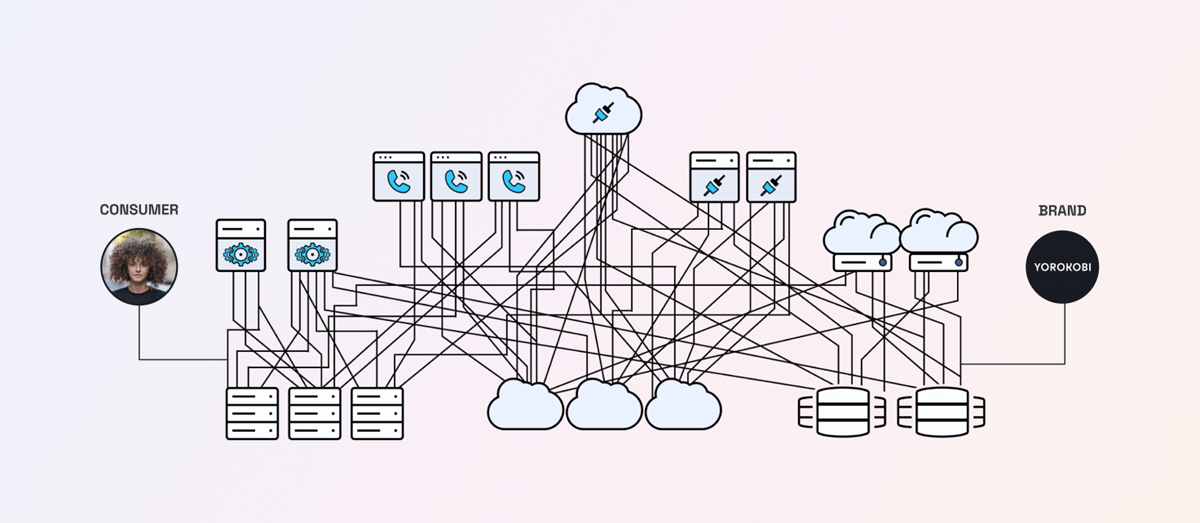
This less-than-seamless customer experience is never what brands want their customers to have, but it happens more often than it should. This is where building connected conversations can help take your customer experience from disjointed and cumbersome to seamlessly orchestrated. Let’s take a look at all the ways in which LivePerson can help you manage customer interactions and orchestrate them so you’re always in the right channel at the right time with the right AI, humans, and data in the loop.
What is Conversation Orchestration?
Conversation Orchestration is the process of weaving together conversation channels, technology platforms, business systems, data, AI, and humans to create seamless experiences and personalized customer journeys. Implementing Conversation Orchestration can be complex and requires careful planning and consideration to make it a truly user-friendly experience. LivePerson is committed to simplifying the process to make it more accessible to all brands.
LivePerson’s framework for Conversation Orchestration
We have developed a framework for orchestration that not only guides our customers in creating this seamless customer service experience, but is also at the core of our product development. We have broken this framework down into three essential components.
- Signal: A specific event within your customer conversations or external systems that is continuously monitored.
- Rule: Business logic that is evaluated after the signal is triggered.
- Action: An action is executed when the conditions of the rule are met.
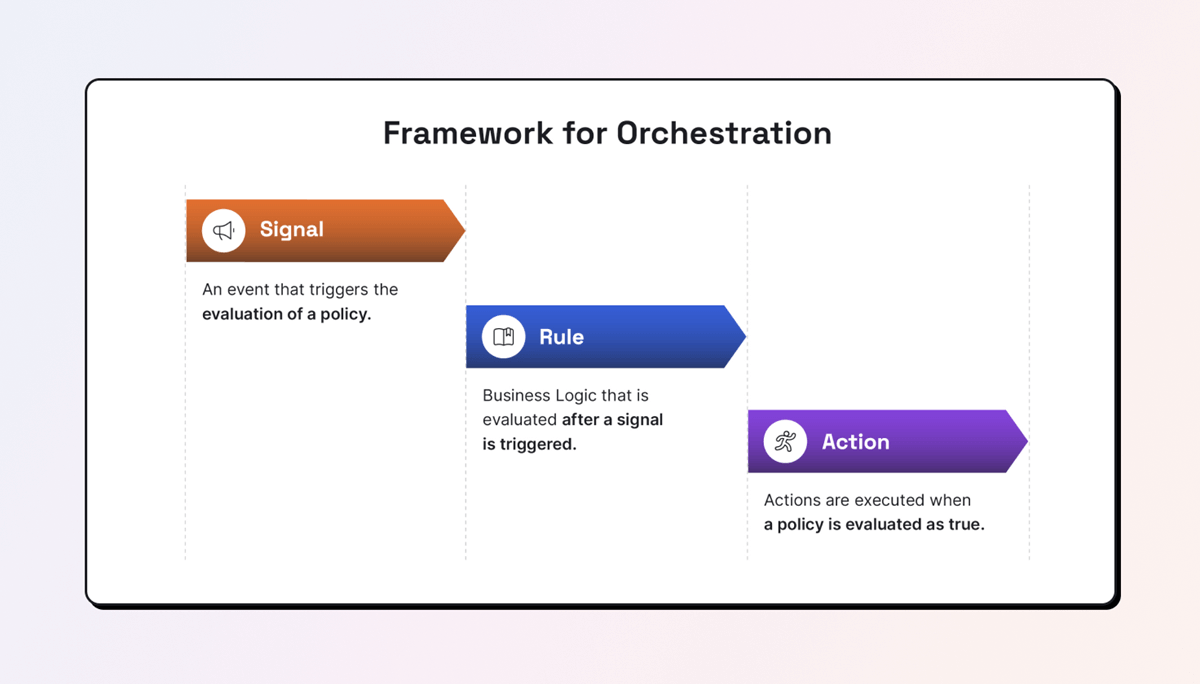
This framework can help you create more proactive, personalized, and efficient customer conversations. Simple in concept, applying this framework requires a deep understanding of your customer journey and common intents to determine your most impactful use cases.
The impact of Conversation Orchestration
Implementing Conversation Orchestration can have an incredible impact on your conversational experience, conversation moderation, and operational efficiency. Here are some examples of Conversation Orchestration use cases and their outcomes.
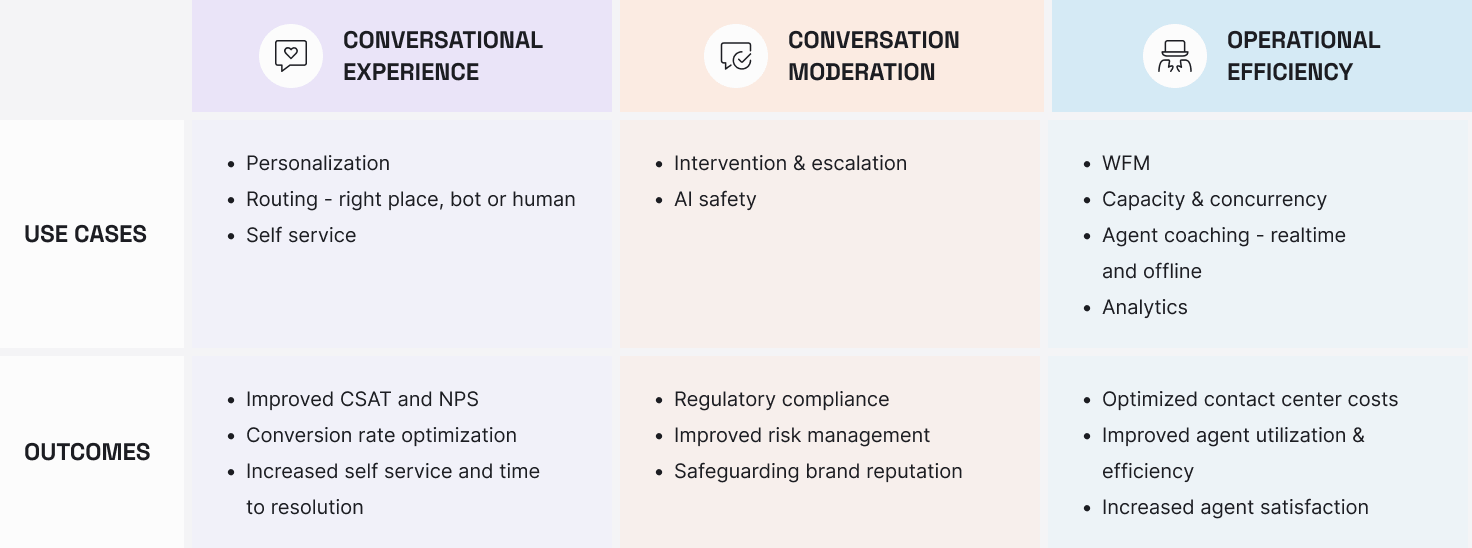
Conversational experience
In order to improve customer interactions, we have to understand where the customer is in their journey, where we can assist with digital self-service, and how we get the customer to the right human or bot. We measure the value of that with things like CSAT and other types of customer satisfaction.
USE CASES
- Personalization
- Routing – right place, bot or human
- Self-service
OUTCOMES
- Improved CSAT and NPS
- Conversion rate optimization
- Increased self-service and time to resolution
Conversation moderation
This part of orchestration is about ensuring compliance within your company. It involves monitoring the conversations to guarantee your agents adhere to regulatory standards, allowing you to intervene or escalate issues as needed. Additionally, AI safety is crucial to ensure that the systems in use do not produce erroneous or unintended outputs, safeguarding brand reputation.
USE CASES
- Intervention and escalation
- AI safety
OUTCOMES
- Regulatory compliance
- Improved risk management
- Safeguarding brand reputation
Operational efficiency
This involves optimizing workforce performance. This includes managing agent capacity, ensuring agents are resolving the right inquiries, and can help with real-time coaching, and analytics to understand and optimize performance. This leads to improved agent utilization and a reduced cost to serve.
USE CASES
- Workforce management
- Capacity and concurrency
- Agent coaching – real-time and offline
- Analytics
OUTCOMES
- Optimized contact center costs
- Improved agent utilization and efficiency
- Increased agent satisfaction
Orchestrating seamless customer service and conversations across multiple channels, with AI and human agents, alongside the right data is how your brand can continue to drive positive business outcomes and increased loyalty.
LivePerson’s solution for orchestrating a seamless customer service experience
Ready to elevate your customer conversations? LivePerson offers a powerful suite of capabilities designed to help brands create seamless, personalized conversational journeys. Let’s explore them:
1. Bring your own LLM
Integrate your preferred LLM from vendors like OpenAI, Google, Meta, or Anthropic into LivePerson’s Conversational Cloud®. Enjoy enhanced performance, compliance, cost-efficiency, and control while leveraging generative AI tools and features across the Conversational Flywheel™, driving personalized experiences throughout the customer journey.
2. Bring your own bot
With LivePerson’s out-of-the-box connectors, easily integrate bots from IBM Watson, Google, Dialogflow, Amazon Lex, or Microsoft. Orchestrate conversations between your existing bots, LivePerson’s first-party AI chatbot(s), AI and human agents within a single interaction, preserving your investments.
3. CRM and CMS KnowledgeAI™ Integrations
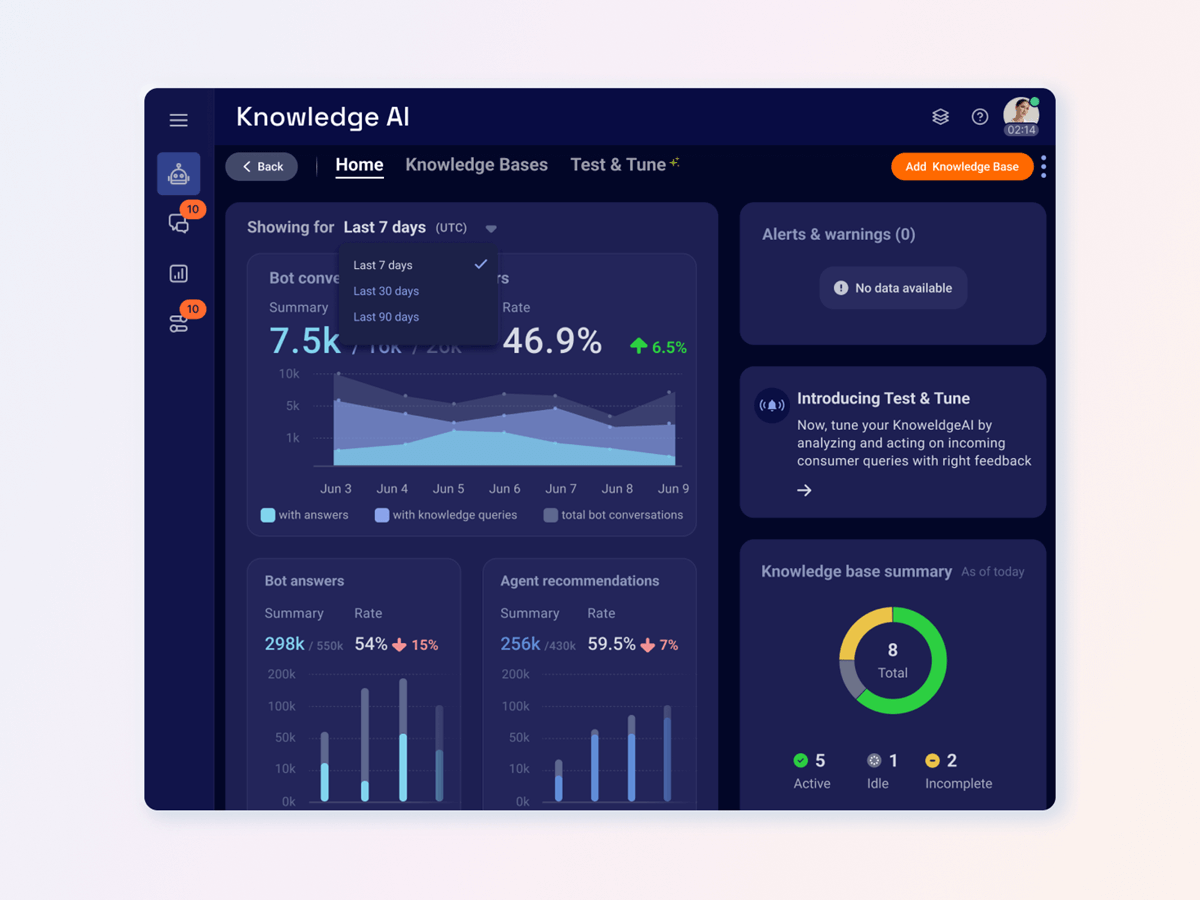
Unify knowledge across your content management system (CMS) and customer relationship management system (CRM) to empower generative AI with accurate, real-time context. Speed up deployment, minimize content duplication, and deliver exceptional customer experiences by connecting your enterprise data with KnowledgeAI.
4. AI agents
The AI agent concept is something you may have heard elsewhere, but it means something a little different to us at LivePerson. Our strategy is not to sell you a one-size-fits-all, all-knowing, all-doing LLM-built AI chatbot. We don’t think that actually makes sense. What we ARE releasing is a set of AI agents, tuned to handle key conversational use cases, that can be orchestrated together to produce the seamless customer experience you want across your phone calls and messaging channels while keeping the control you need as a business. It also allows you to gracefully pair generative AI with your human agents, helping them work faster and empowering them to focus on the conversations that matter most.
KnowledgeAI™ agent
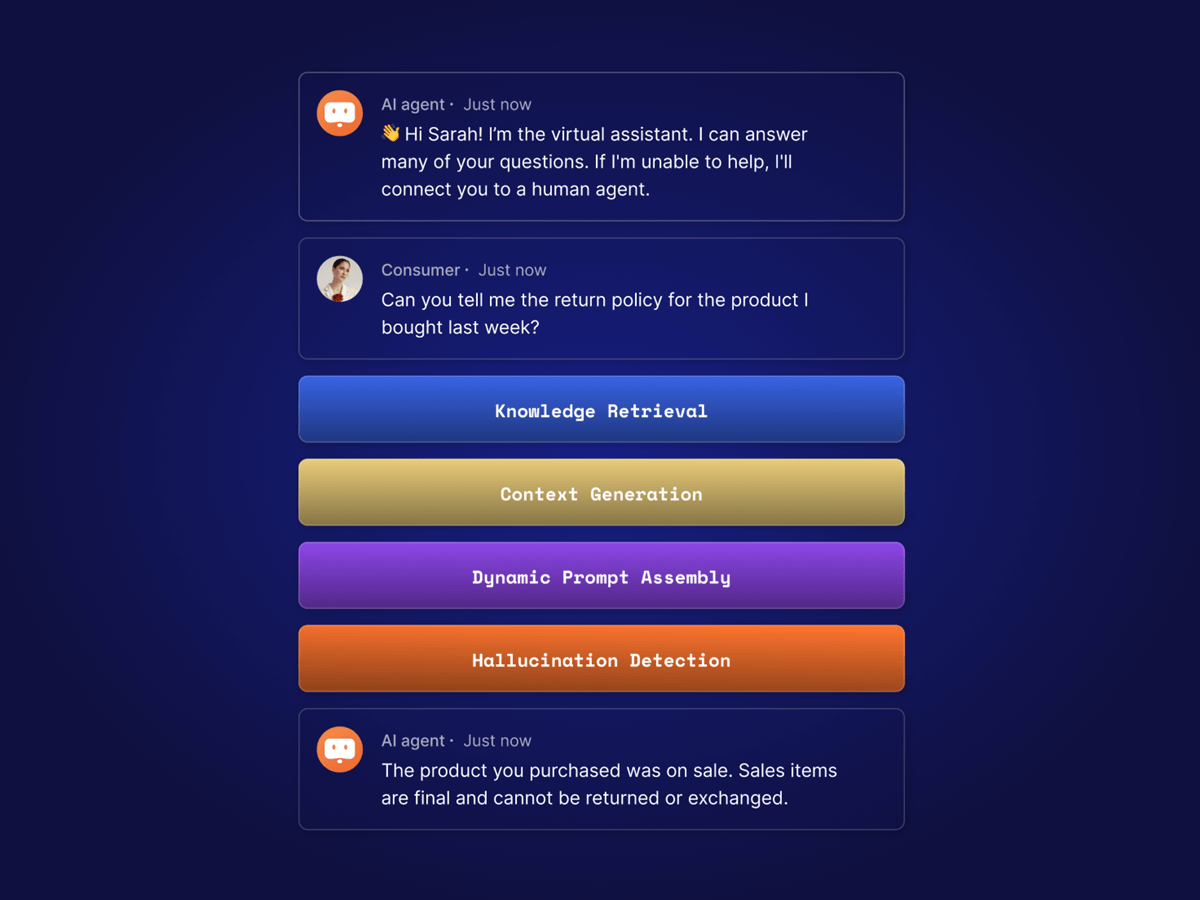
Data collection AI agent

Routing AI agent
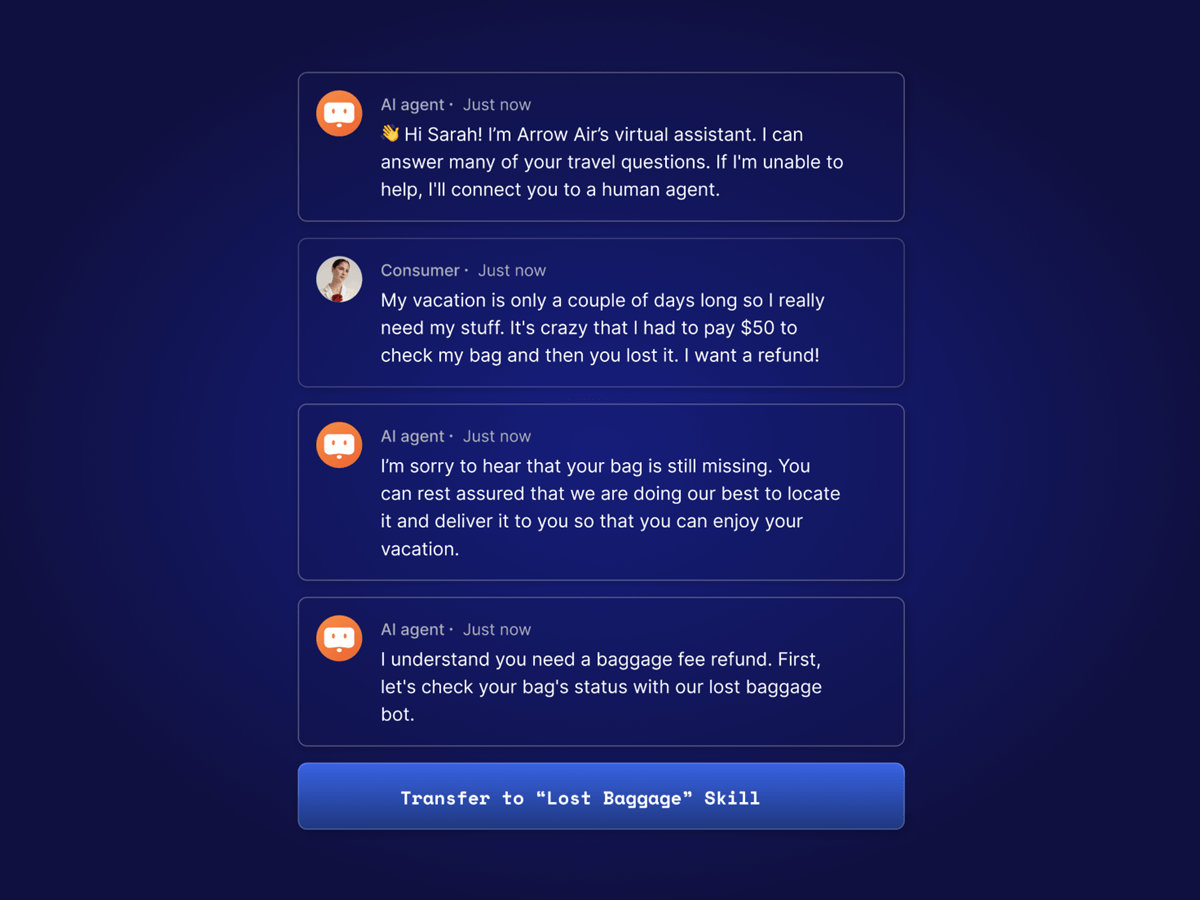
When all of your tools and systems seamlessly work together, it feels like a symphony — a conversation orchestration. But putting together this orchestra of seamless customer service doesn’t require years of preparation, LivePerson’s solutions are designed to get you up and running quickly so your customer conversations never miss a beat.
Ready to orchestrate more personalized conversations and exceed customer expectations?
Grab this guide to learn how and build a more seamless customer experience.


